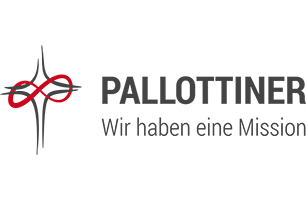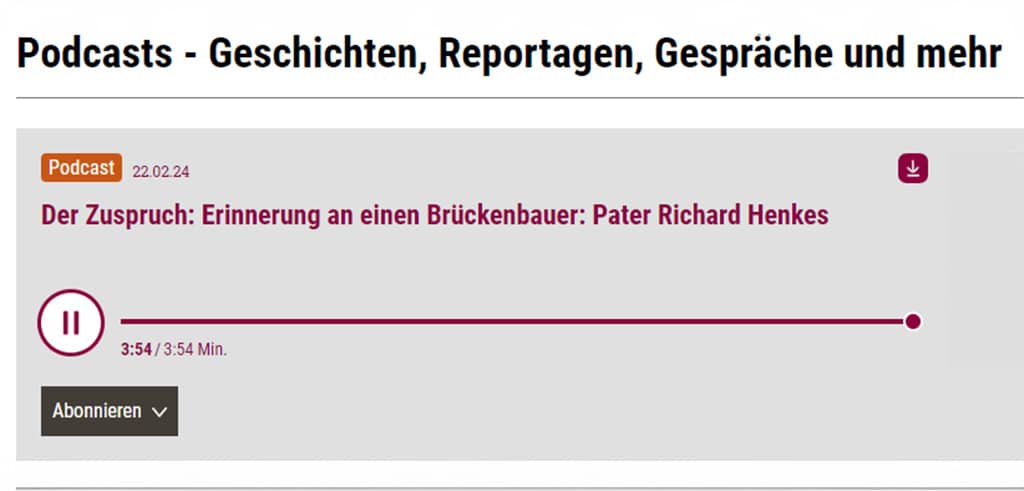
"This is the murder of the defenceless"
We remember the example of Father Richard Henkes
Since 2019, Father Richard Henkes has been recognised as Blessed and can be venerated by the faithful as an example of faith. His memorial day is 21 February – children named after him have their name day on this day. 22 February 1945 was the anniversary of his death in the Bavarian extermination camp at Dachau.
The idea of sending political or ideological opponents to prison camps still exists today. Then as now, this behaviour comes from people with an inhuman ideology who have come to power in a society. Fascists like Hitler, Franco or Mussolini were able to live out their perverse misanthropy. Today it is states like North Korea, Russia, Belarus, Iran, China, … that want to keep critics, ethnic or religious minorities and dissidents at bay. Many people die in custody, such as the recent Russian dissident Alexei Navalny or the Kurdish woman Jina Mahsa Amini.
Populists, autocrats and fascists claim to speak for the majority of people. In the run-up to power, then as now, they try to obfuscate the language and thinking of the majority.
During the Second World War, the Nazis wanted to dissolve the Branitz mental hospital with its 2,000 inmates. The patients were to be killed. Nazi propaganda prepared the ground with leaflets in schools, which teachers had to use as teaching material. Disabled people were described as “pests of the national wealth” because they “eat and do not work”. The leaflets suggested that this “unworthy life” should be “eradicated”, “as is done with plants and animals”.
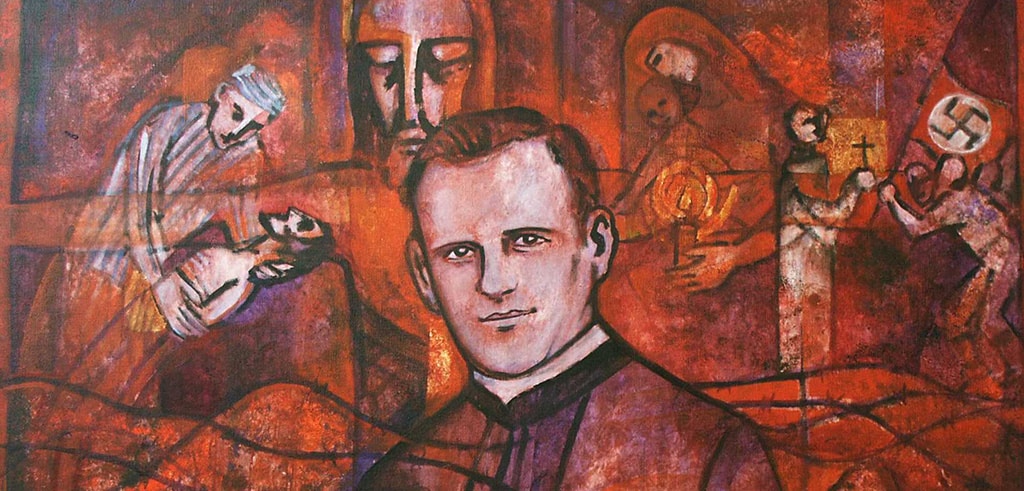
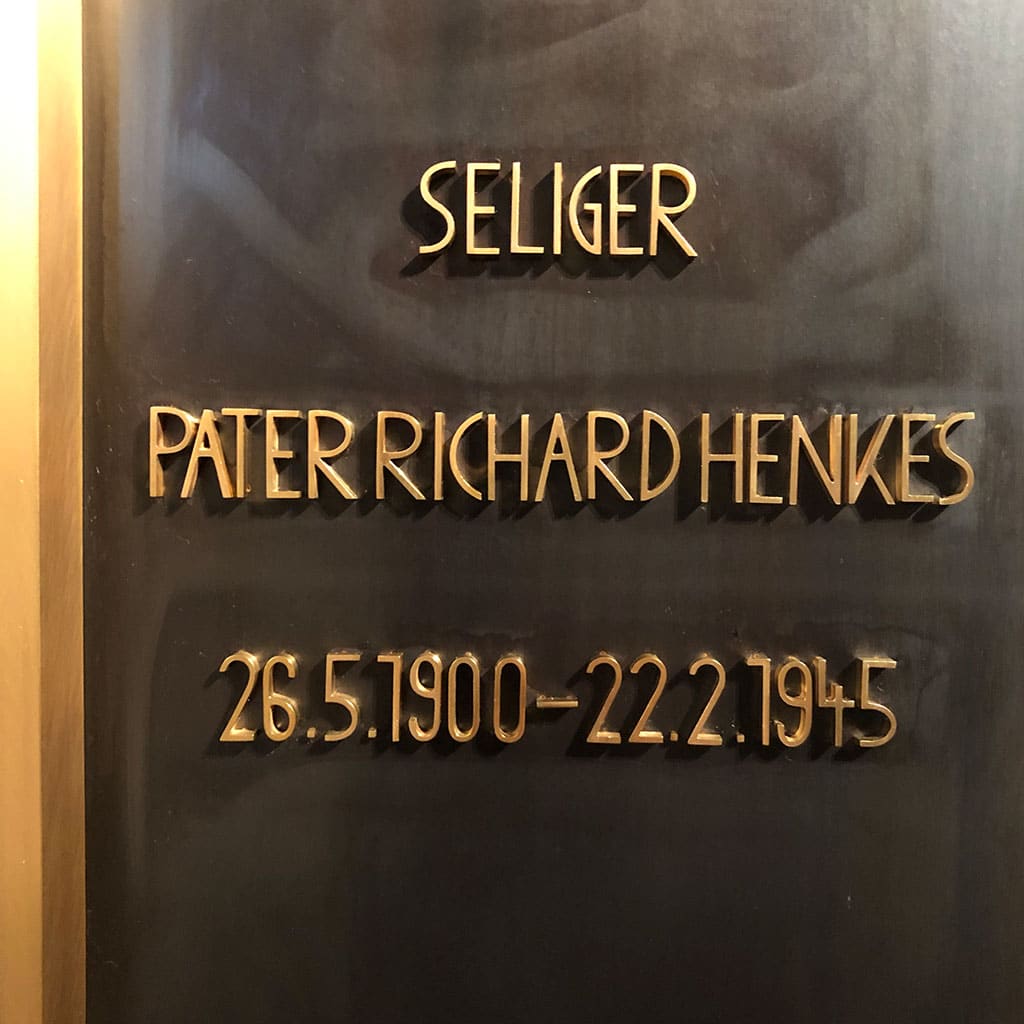
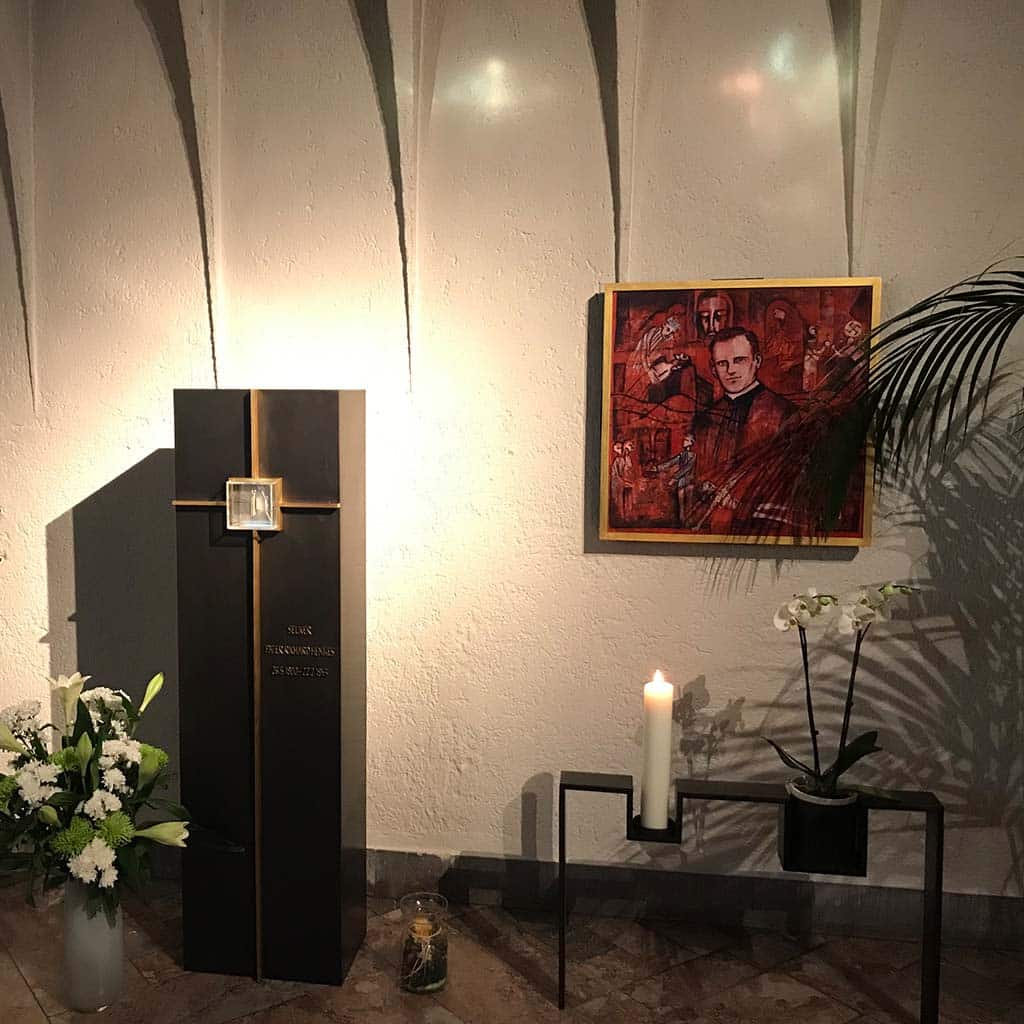
Murder of the defenceless
Our confrere, Father Richard Henkes, protested against this and preached against it on Sundays. He called it the “murder of the defenceless”. He was reprimanded, sent to an extermination camp and died of typhus.
What can we learn from this today?
Let’s stand up for participation, diversity and dialogue. For a different way of living together in this world! Let’s look at our language. Let us choose words that do not exclude, but encourage and protect.
“Ausmerzen” (Culling) – a Nazi term
“Culling was a word used in sheep farming until the 18th century: In March (formerly Merz), weak sheep or sheep unfit for breeding were weeded out. The word appeared around 1900 in the context of right-wing racial ideology and so-called “racial hygiene”. The Nazis saw themselves not just as people, but as a “race” that needed to be protected from harmful influences. Therefore, sick, disabled and weak creatures of their own race or of the “other races” proclaimed by the Nazis had a lesser or no right to life. Other terms used during the Nazi era were: degenerate, final solution, euthanasia, Führer, Gleichschaltung, Überfremdung, Umvolkung.The non-words used today are: foreigner-free, ethnic cleansing, climate terrorists, remigration, pushback, corona dictatorship, climate hysteria, anti-deportation industry, lying press, social tourism, no alternative, alienation, prosperity rubbish. Then, as now, the intention is to prepare a different politics and social order with a deliberately different choice of words. Today, when houses for asylum seekers are burned down, homeless people or politicians are killed, the defenceless are murdered again.
What would Father Henkes say today about the "remigration" plans of right-wing extremists?
ASKED
Answers by Father Alexander Holzbach on the 79th anniversary of the death of Father Richard HenkesOn 22 February 1945, Father Richard Henkes died in the typhus barracks of the Dachau concentration camp. He had contracted the disease because he wanted to accompany his fellow prisoners and so allowed himself to be locked up in the barracks. A courageous step that cost him his life. What can we learn from it today?
It’s impossible to understand. It was an extraordinary situation that Father Henkes could not have imagined years ago. Anyone who has never shown courage or love for people or a cause in his life cannot jump over his shadow in such a challenge. The most we can learn from Father Henkes’ final step today is to ask ourselves honestly whether we are sensitive to the hurts and injustices that people around us experience at the hands of other people or systems. And how we respond to them.
Father Henkes was sent to a concentration camp because he spoke out in a sermon against the transport of the sick as “unworthy of life”. He was simply opposed to marginalising people, excluding them from society and ultimately even killing them. What would he say today about the “remigration” plans of right-wing extremists?
Father Henkes had the courage to defend the Christian concept of human dignity against Nazi ideology in schools and sermons. This ultimately cost him his life. Even today he would not remain silent when people are pushed to the edge, when derogatory differences between “us” and “them” are invoked, when Jews have to be afraid again, when the lives of healthy people are valued more highly than those of the sick and disabled.
As a parish priest in Strandorf – now Strahovice in the Czech Republic – Father Henkes worked for reconciliation between Germans and Czechs. Can he be an example for us in the work of reconciliation between peoples, including those at war today?
Father Henkes, who was not particularly gifted in languages, learned Czech in the parish and in the concentration camp in order to understand “the other” and to be able to meet him at eye level. Trying to understand the other is the first step towards reconciliation and forgiveness. This means recognising them as equal partners in dialogue and not allowing ourselves to be dictated to “from above”, but taking steps towards each other in a fair give and take. What Father Henkes did at the end of his life is certainly too much for us today: he allowed himself to be locked up in the deadly quarantine block, not least for the sake of his fellow Czech prisoners.
Impulse for the commemoration of Blessed Richard Henkes in 2024: Joseph Eberhard
Interview with: Alexander Schweda (questions), Father Alexander Holzbach (answers)
Pictures: Diocese of Limburg (graphic documentation); A. Kratz (Heinen painting); Josef Eberhard (memorial stele)
Artists: “Drushba Pankow” Volker Schlecht and Alexandra Kardinar (graphic documentation), Beate Heinen (painting)
Link to the HR2 podcast on Father Richard Henkeszum Podcast auf HR2
Link to the podcast on HR2
by pastoral counsellor Andrea Maschke from Frankfurt
For pastoral counsellor Andrea Maschke, our confrere Richard Henkes is a role model. In her view, he left his mark with his life and risked much in his resistance to the Nazi regime. A podcast on the anniversary of his death on HR2.
Author: Pastoral Counsellor Andrea Maschke, Frankfurt
Published on 22.02.24 at 05:25
Source: © Hessischer Rundfunk
Picture: Hessischer Rundfunk, Screenshot
Share this article…
Recommended
